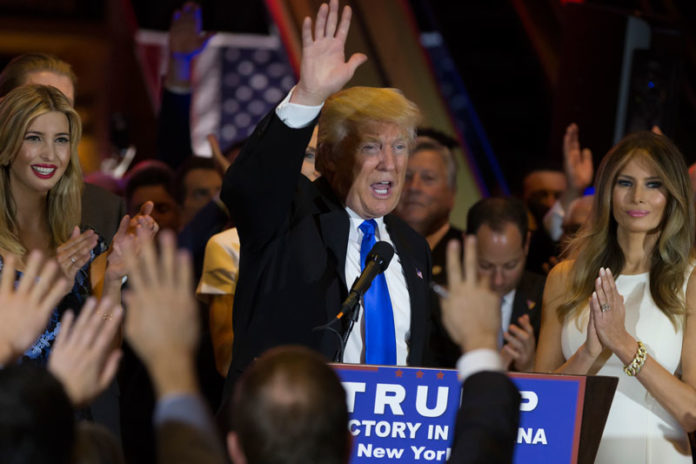Listening to Donald Trump’s speech at the Republican National Convention last week, one could hear ghostly voices of America’s political past – from the turgid populism of Louisiana’s “Kingfish” Huey Long, to the law and order steeliness of Richard Nixon; and, even, ironically, to the cadent droning of Bill Clinton, the master of the “laundry list” State of the Union speech. And, the quality of the Trump rhetoric aside, one could even glimpse some of the aura of “royalty” that so enamored John F. Kennedy to voters nearly six decades ago.
Depressingly absent, however, from this collage of former presidential aspirants and American political figures, was any hint of the inspirational rhetoric and the philosophical coherence of conservative icons of old – Ronald Reagan, William F. Buckley, and Barry Goldwater, to name just a few. Yet, such is the current state of the GOP.
It is also the challenge now facing the Grand Old Party’s 2016 presidential nominee.
For conservatives, there is no question that between Trump and Hillary Clinton, he is the superior candidate. But, neither candidate is running in a vacuum, and for Trump to win the general election, he must run against Hillary as much as he must run for the votes of Republicans not yet sold on the fear-based foundation of his campaign. As Ross Perot — another ghost of campaigns past — proved to the GOP in 1992, it is not enough for the Republican nominee to simply court rank-and-file Republicans to carry the general election.
The reason Trump is preferable to Hillary is simple, even to those Republicans still on the fence. Despite his populist rhetoric and spotted past, Trump at least shows some degree of promise that he can be the conservative leader America needs. His turn-around on the Second Amendment – moving from pro-gun control to vocal advocate of the right to keep and bear arms – illustrates what is possible when he turns off his mouth for a few minutes, and reflects on why the GOP traditionally has been the party of individual liberty and the Constitution.
This is how Trump can win — by combining the voices that gave him the nomination with the philosophy that can give him the election.
For better or worse, Trump’s strongman populism will remain an unshakable centerpiece of his campaign; it reflects who he is and how he wishes to be perceived. Rather than attempt to change this, he should learn to use it to his advantage. For example, instead of repetitive ranting about America losing jobs overseas and suggesting the fix is using federal power to punish CEOs, Trump should argue the best way to save American jobs is to reduce the tax and regulatory burdens that drive jobs out of the country. Or, rather than boasting about being a head-cracking “law and order” candidate reminiscent of Nixon’s fear-mongering persona, Trump could take up the torch of criminal justice reform that would free up resources to focus on serious violent crime, with the added bonus of potentially winning minority votes as well.
On many issues where Trump has let his populism overtake traditional conservative principles, there exists an alternative narrative that satisfies both the needs of his base, and the demands of a conservative electorate still unsure about the new GOP standard bearer; but it will take at least a little finesse to get to those voters. On the positive side, it is not as if Trump has ever let a reverse-course on an issue bother him, especially if it could put him a step closer to winning.
Trump stands at a crossroads in his campaign; and hoping Hillary and the Democrats continue to collapse is not a reliable or winning strategy for victory in November. Taking the mantel of a conservative standard bearer for the party, is.
Huey Long once bragged that he could “frighten or buy ninety-nine out of every one hundred men.” Earlier, as a contender for the Republican nomination, Trump might have made a similar claim to rally his boisterous supporters. But, if he wants to win the general election, Trump must dispel the ghosts of the past, and attempt instead to “sway or inspire ninety-nine out of every one hundred conservatives.” He has his work cut out for him.






























